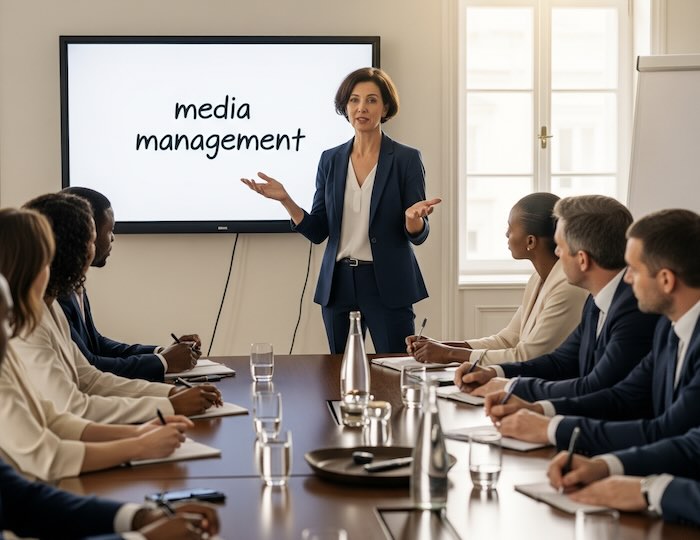 In this scenario you are a political correspondent working for a national public service broadcaster. A lobbying company offers you a significant amount of money to train lobbyists in how to influence the media. What do you do?
In this scenario you are a political correspondent working for a national public service broadcaster. A lobbying company offers you a significant amount of money to train lobbyists in how to influence the media. What do you do?
One afternoon you receive an email from an influential public relations (PR) company which is heavily involved in lobbying politicians. The email says that the company thinks you would be “the perfect fit” to deliver extensive media training to their staff to help them and those they work for to “effectively handle challenging questions from the media, manage negative narratives, and push their preferred lines in broadcast and print interviews”.
They are offering a substantial fee for a series of workshops over a three-month period. The proposed schedule would be outside of your regular working hours, meaning it wouldn’t directly clash with your reporting duties.
What should you do?
Option A: Accept the offer
- You are faced with a significant ethical dilemma. On the one hand, the fee is very attractive and would provide a welcome financial boost. The training itself involves your expertise in media dynamics, something you excel at. You might even rationalise that by understanding how lobbyists are trained to control the narrative, you could become an even better interviewer, more adept at cutting through the spin.
- You have just moved home, have one child and another on the way. Your family finances are stretched. You could certainly do with the money. The pay for a three-hour evening session is more than you earn in a week as a political correspondent.
- If you kept quiet about it, and did it in your own time, what harm is there? Nobody needs to know about it, and what you do in your free time is up to you.
Option B) Reject the offer
- Explain to the company that you feel it would compromise your position as an independent political correspondent who has built their reputation on delivering journalism with integrity.
- Tell your editor about the offer so that they are aware that a lobbying company is trying to hire their staff to do PR training.
The right course of action
The right choice is option B.
To uphold your journalistic integrity and avoid any actual or perceived conflict of interest, your best course of action is clear and non-negotiable:
- Unequivocally decline the offer: This is the only way to prevent a fundamental conflict of interest from arising. You must politely but firmly explain that your role as an independent journalist, committed to scrutinising power and informing the public impartially, makes it impossible for you to participate in training that involves helping lobbyists to manage or manipulate politicians in order to advance their aims. Accepting such an offer would be a direct betrayal of your professional ethics.
- You are a journalist and not a PR consultant: When you signed up as a journalist you agreed to ethical values that are at the heart of all you do. To take on this work would be to cross a line. Your integrity as a journalist would have been compromised.
- Immediately inform your editor: Transparency with your employer is paramount. You must immediately inform your editor about the offer, detailing its nature and your decision to decline. This demonstrates your commitment to ethical conduct and allows the editor to be aware of the situation and offer guidance or support if needed. It also helps to pre-empt any potential rumours or issues that could arise if the company mentions your name to others.
- Reinforce professional boundaries: Internally and externally, you must continue to reinforce your professional boundaries. This means maintaining a clear distance from all lobby groups, PR companies, and political parties, and continuing to hold them to account equally in your reporting, and not allowing this offer, or any similar future offers, to influence your relationships or coverage in any way. Your independent critical eye is your most valuable asset.
By unequivocally declining this offer, you safeguard your reputation, your news outlet’s credibility, and the public’s essential trust in your impartiality. Your value as an independent reporter who challenges rather than assists media messaging and spin is paramount.
Related article:








